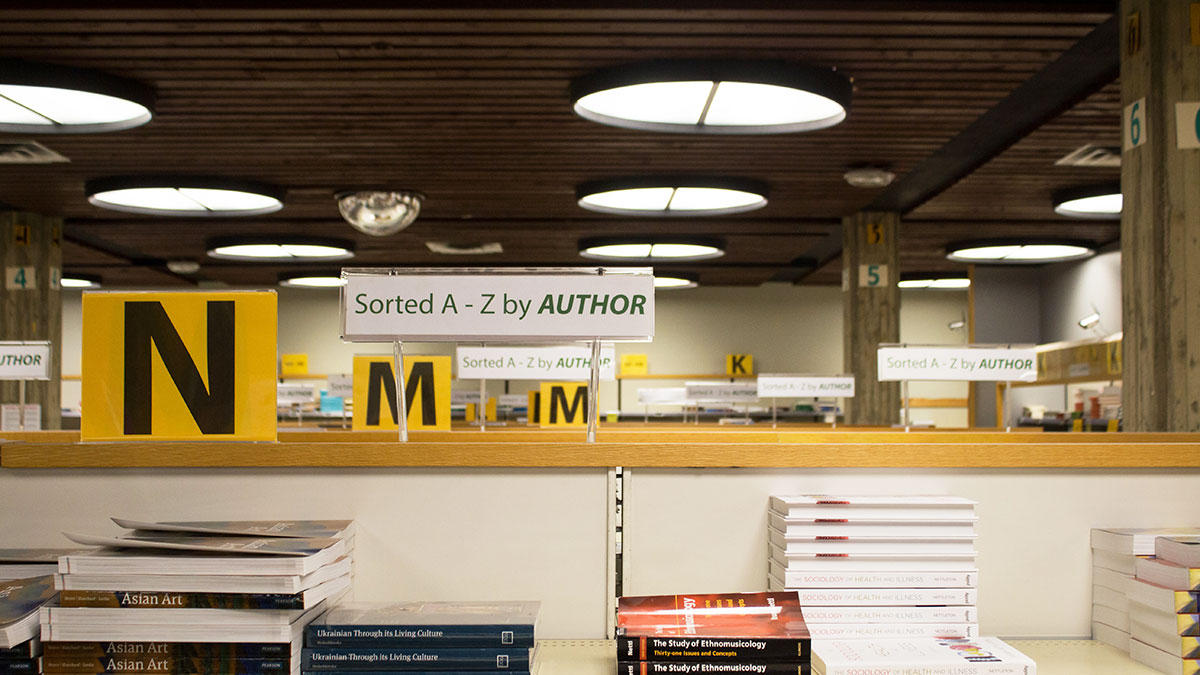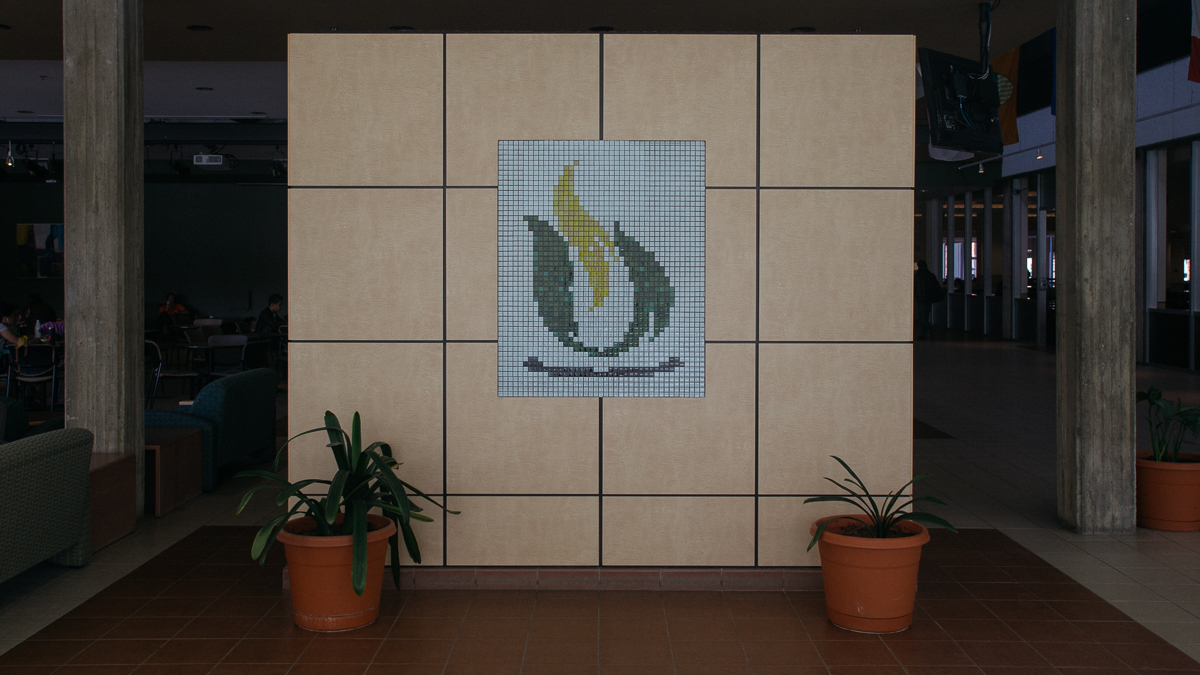 Christina Varvis
Christina VarvisThe bookstore. The less-friendly library. The place with lines that holds an eerie parallel to prisoners lining up for their execution — except instead of losing their heads they’re losing an entire digit from their bank accounts. Whichever way you might think of this place, it’s more or less been engrained as a staple of the first few weeks of university life. Despite the Student Union’s campaigns over the past few years pleading the naïve to try other purchasing routes such as buying used, every year the endless lines continue.
Some people’s search for cheaper text books ends at the U of A Used Books For SALE! Facebook page. Sure, buying used textbooks is a great way to save money — but when that fails, where else is there to turn? There is of course the library, which often stocks a set of titles at their reserve desk for study use. You’ve also got choices like buying an eBook, which can often be cheaper than other sources. But if you’re like me, and love that good old feeling of real paper in your hands like a pre-2016 Gateway, are you forced to dish out an inhumane quantity of sweet moolah? More often than not — no!
Textbook publishers price their books based on the location they’re sold in. Based on clauses in the Canadian Copyright Act that allows them to obtain exclusive distribution of their titles, they are allowed to charge a 10 per cent premium for American titles, and a 15 per cent premium for titles from outside North America, according to an article published by Maclean’s magazine. Anecdotally, I would say it always seems that these price inflations work out much higher to the consumer at checkout. Besides the price of distribution and royalties back to the authors, it’s quite clear that the paper itself isn’t the pricey part when the seasonal Sears catalogue comes free in the mail and its glossy sheets put many books’ flimsy pages to shame.
Enter the “International Edition,” sometimes going by other names, such as the “South East Asia Edition” or “Eastern Economy Edition.” I believe this may give the impression that this book contains different content and maybe even a different language than the Canadian Edition of the same authored and titled book. The naming of these editions, however, is often simply regional, and little to nothing to do with the content of the book.
I am currently completing a BSc in Engineering Physics, so I apologize for the science-ey nature of all of my examples. All bookstore prices are before tax, and all of my prices are net and what I encountered upon purchase from one online book marketplace rounded to the nearest dollar, including shipping and tax. “Optics” by Eugene Hecht — a standard introductory title in optics and photonics. Bookstore price: $160. My price: $26. “Engineering Design: A Project Based Introduction” by Clive L. Dym et al. Bookstore price: $60. My price: $22. “Microelectronic Circuits” by Sedra et al — the standard text in advanced circuit design. Bookstore Price $250. My price: $40. “Introduction to Electrodynamics” by David Griffiths — the standard text for anything electromagnetism. Amazon new price (not stocked in the bookstore this term): $153. My price: $34. The original sale price of this one is even printed on the back at ₹375 (Indian rupees) which converts to approximately $7. That means you’re paying around 20 times more, all because you live in Canada instead of India!
These comparisons do not necessarily reflect hardcover and softcover. The different editions may have different prefaces or forwards, giving a bit of context from a regional professor or expert in the field. In addition, I’ve had some troubles recently helping my younger brother find the mass produced first year intro titles — which are likely heavily controlled in publication because these are the real cash cows for the publishers.
In the end, the content itself has been identical in all of my experiences. Words on paper written in a new book here are the same words on paper in a new book found in the bookstore, and that’s something anybody in it to learn more can agree on. Next time you’re looking for books, don’t hesitate to go on the internet and find some of these foreign editions. I’ve had luck with www.abebooks.ca, and the used listing on www.amazon.ca is sometimes good, but I’m sure there are many alternatives.




